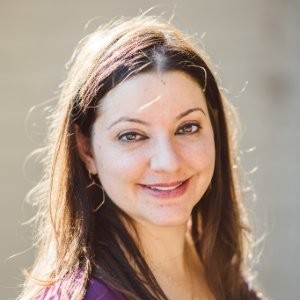
Cities and companies may try to ban bottled water, but this convenient form of hydration isn’t going anywhere soon. One company, Agana Rainwater, is taking a different approach to making bottled water more environmentally friendly: collecting, filtering and bottling rainwater that would otherwise go wasted.
We interviewed Marc Howell, Agana’s founder and CEO, to learn more about the Buda,Texas-based company and hear about its future plans.
TriplePundit: How long has your company been in operation?
Marc Howell: We started sales in 2012, but started building the facility and getting state approvals in 2011.
3p: How did you come up with the idea to collect, bottle and sell rainwater?
MH: I am a licensed irrigator and start[ed] using rainwater collection for irrigation during drought times. Once I saw how plants responded to rain over municipal water, I knew that humans would respond the same way. We tested the water and found out that this is the purest form of raw water if collected [using our Sky Spring process].
3p: How does your product conserve water and other resources?
MH: There is no waste in our process like purified waters that throw away between 40 and 60 percent of the water. We are also using an unutilized resource that would otherwise sit in a planned retention pond and would never make it to lakes, rivers or aquifers. All other water sources pull off dwindling water supplies, while rainwater is taking what was already planned not to be utilized.
3p: How much rainwater have you collected and bottled since you’ve started your operation?
MH: We have bottled and sold nearly 1 million bottles since we started, and we have not begun to max-out our Buda Sky Spring facility. We can produce 1 million bottles on 1.5 inches of rain.
3p: Where do you collect the rainwater? Where would the rainwater go if you didn’t collect it (the storm drain, sidewalk, etc.)?
MH: We collect rainwater on our Sky Spring facility in Buda, Texas. The water would sit in our retention pond in the back of our building. None of it would make it to a water source or replenish the aquifer.
3p: Does collecting and bottling rainwater diminish ground water supplies?
MH: No, our concept is taking commercial real estate that already has a master planned drainage system and utilizing that resource.
3p: How do you process the water once it’s been collected?
MH: We flush and filter the raw water until it has bottled water clarity. Our finished raw water tank is 13 times purer than Fiji's finished product and two times as pure as Smartwater’s or Voss’. We then run our water through an ultra-filtration process and disinfect it with UV and ozone.
3p: Does acid rain affect your product?
MH: Acid rain is a reality in colder regions with acidic soil or around petrochemical plants. We have no acid rain around our Sky Spring facility in Buda and would avoid these areas for future Sky Spring facilities. Our requirement study can define those areas to avoid them.
3p: How are your bottles environmentally friendly? You say they’re both biodegradable and recyclable–how is that possible?
MH: We use Enso bottles, which are a petroleum-based polymer that is recyclable in mainstream recycling. The polymer is injected with an organic additive that, if introduced into an aerobic landfill situation, can biodegrade.
3p: Where do you sell your bottled water? Who are some of your biggest clients?
MH: We sell water to Whole Foods, Natural Grocers and Vitamin Cottage, the Four Seasons, the Hilton, the Hyatt, John F. Kennedy International Airport, LaGuardia International Airport, Ronald Reagan National Airport, Orlando International Airport and Philadelphia International Airport.
3p: Any exciting future plans for your company?
MH: We are looking to make Agana Rainwater a household regional name by bringing on an experienced sales/broker team that has 29 years experience in the consumer packaged goods industry. We are in talks with one of the world's largest retailers to [add our Sky Spring collection process] to their facilities and also in talks with the largest distributor in Costa Rica to do the same. We have weekly calls to partner with domestic and international companies looking to take control of their water futures.
Image credit: Agana Rainwater
Passionate about both writing and sustainability, Alexis Petru is freelance journalist based in the San Francisco Bay Area whose work has appeared on Earth911, Huffington Post and Patch.com. Prior to working as a writer, she coordinated environmental programs for Bay Area cities and counties. Connect with Alexis on Twitter at @alexispetru

Passionate about both writing and sustainability, Alexis Petru is freelance journalist and communications consultant based in the San Francisco Bay Area whose work has appeared on Earth911, Huffington Post and Patch.com. Prior to working as a writer, she coordinated environmental programs for various Bay Area cities and counties for seven years. She has a degree in cultural anthropology from UC Berkeley.














